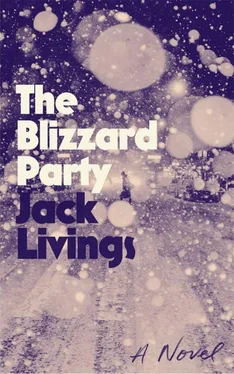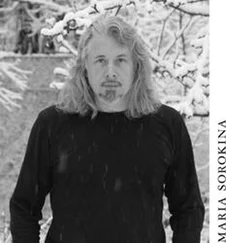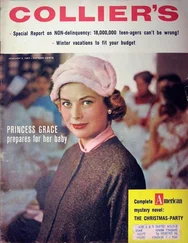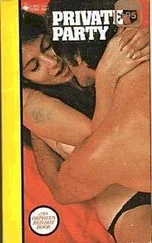My mother’s drink was gone and she raised her glass to signal that she was taking her leave. Have to go check on my daughter, she said.
She’s tending bar? the husband said.
I hope not. She makes a crappy martini. She’s probably out on the terrace getting stoned, my mother said.
A little bit she wished my father were there, if only to insert his cranky old man routine between herself and these people, to put on the Erwin Saltwater show. He’d have an admirer or two in the crowd. But getting him out of his study for anything less than a nuclear event required negotiations—endless negotiations—and since he’d only days earlier done his worst at the Vornados’ Montauk house, it was, for everyone’s sake, better for him to take the night off.
At parties, my father tended to moor himself by the bar. My mother was better at working the crowd, and could convince him to pull up anchor, but platonic flirtations bored him, the requirements of engagement and polite interest made him crazy, and his manner—he tended to leer, hanging just outside the edge of a conversation, so that no one knew whether to address or ignore him—could unbalance even the most carefully calibrated group of small-talkers.
During his serious drinking days, he’d gotten a reputation as a sawtooth blade, an inveterate dismantler of psyches, but that wasn’t anything more than a reputation, one he’d cultivated by venting to journalists, whose attention wandered if he spoke reasonably on any subject for too long; as far as keeping strangers at bay, it happened to work to his favor. He was like a contaminated landmass observed from a passing ferry, off-limits by government decree. In a public setting, only the most ardent young fans were willing to risk it. Old hands who knew a duck blind when they saw one might consider approaching, but to what end? It was easier to find someone they actually wanted to talk to. Obviously he wanted to be left alone, but being alone in public was as bad as the spotlight. It was the spotlight.
Never had he himself been able to approach a stranger and strike up a conversation. Once, when my father was young, after observing him ineptly navigate a book party for the better part of a Saturday night, Kurt Vonnegut grabbed his arm. Son, don’t take this wrong, he said, but it’s like watching a bird fly into the same damn window over and over, and you’re breaking my heart. Here’s some advice: Find the piano. Sit down. Shoot your cuffs. Play. It’ll at least give you something to do with your hands.
I don’t play the piano, my father said.
Call it jazz, Vonnegut said. These people will believe anything.
What he learned to do with his hands was hold drinks, which found their way down his throat so quickly that by the time my mother had dropped off her coat, stopped to peck the cheeks of a couple of friends, and swung back around to find him, he would often be gearing up for his third scotch. Regardless of where it shows up, bartop bender or wake, a third scotch is the opening scene of a long drama that no one wants to hang around to see the end of.
My father drunk was a good impression of a snowbank: silent, immemorial. Adequately dulled, he could bear almost any line of conversation, though he’d perk up a little if the subject turned to the designated hitter or Berryman. It almost turned him into a piece of furniture my mother could maneuver around the room.
Almost. Except when he got so drunk he dismantled her friends to their faces.
Definitely better, she thought, that he’s not here.
To get to the bedroom where I was watching TV, my mother had to cross the packed dining and living rooms, spaces as large as the foredeck of a cruise ship. She dipped in and out of various ecosystems, the haze of Cohibas lingering over a pack of men in ski sweaters, the dark and light of French perfumes, Charlie, Estée, aftershaves that dropped the needle on jingles in her head, backslapping, roaring laughter, groin to satin ass as she squeezed through the narrow channel beside the baby grand, nods, waves, I’ll be back, pointing at glass, the only respectable reason to be on the move, an act of weirdness, tacking into the wind, atop it all the noise of Iggy Pop dedicating “Rich Bitch” to the Hebrew ladies, and atop that, trilling soprano laughter, glass clashing, and near one of the bar tables, positioned by the doors that led to the foyer, she had to decide, Get a refill or check on the kid first? Priorities, old girl.
Franklin was behind the bar wearing his lightly toasted shirt and clip-on bow tie, and she wondered what they’d had to pay him to come out in weather like this. Not enough; he was doleful as ever. Ma’am, he said, and she ordered another rum and Coke. She turned back to the crowd, which was whitecapping now that the Stooges were back in the throes.
Her drink came to her two-handed, fluttering napkin skirt, a mournful smile, another signal, she understood, that it was early, he was still fishing for tips. What was it to be without your spouse at a party? A relived experience? A journey into the past, to the days before Erwin? She knew women who wouldn’t even leave the house by themselves for a cup of coffee, but, then, they’d been brought up somewhere else, in those places where a lone woman was a meal, an invitation to get up to mischief. It didn’t matter that she understood. She still couldn’t stand them.
She turned toward the foyer, sliding sideways through the crowd, changing course to avoid Sonia Kasgard, who would get your forearm like a bear trap and whose eyes would bore into yours until you submitted to her crumbling eyeliner and bloodshot, crazed whisperings—in a room where you couldn’t hear your own voice—drawing you closer, closer, until those waxen red lips were intimately involved with your ear. She was New York batshit crazy. Checked all the boxes. Health-food nut. Cats. Dressed like a bag lady. Millions in the bank. Never shut up about real estate. It was never anything but what was up for sale at the Dakota and how she really felt that just a little more space, just one more bedroom, a tad more square footage… She had a three-bedroom in the Apelles and six on twenty acres in Westport, next to the Lindberghs, no less. Space was an infection, and you didn’t want to catch it from her.
Arriving unassailed in the foyer, a marble-floored gallery space big enough to execute a three-point turn in, yes, a Volkswagen Beetle, an advertisement to anyone entering the apartment that the residents were urbane, rich, thoughtful collectors of modern art, my mother encountered a man still wearing his parka, water pooling around his boots. He was facing the large canvas opposite the door and muttering to himself, a bridge troll between her and her daughter. As she approached, he addressed her with his attention still focused on the painting.
They put it right here to slap you when you walk in.
She narrowed her eyes. It’s exactly what she’d thought when she’d first come in. Yet another painting they’d bought instead of hers.
I suppose so, she said. How often did the city subject her to the free associations of men who had her captive attention for ten seconds in an elevator, ten minutes in a cab? Five times a day? Fifteen? You plied them with affirmations until you were set free. The cabbie, the suit and tie, the doorman at the building next door, a man she passed multiple times a day, Hey, momma.
Ha! the man exclaimed. There it is, he said, stabbing his finger at the canvas. There it is, goddamnit. Look. Right there. A goddamn question mark. He nodded ruefully, having made short work of the incomprehensible painting so cruelly thrust upon him without an instruction manual, without an apology for being something that existed beyond the scope of his imagination.
My mother had the feeling he was the sort who did battle with abstraction in all its forms. What redeeming quality could possibly exist in someone who sought out punctuation from a Joan Mitchell, who took a piece of art as a call to arms, its mere existence a direct challenge to his supremacy? He was one of Bo’s friends, obviously.
Читать дальше












